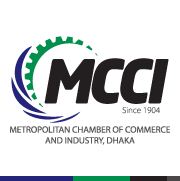Excessive government borrowing from the banking sector could significantly increase inflationary pressure while restricting access to credit for the private sector, warned Kamran Tanvirur Rahman, president of the Metropolitan Chamber of Commerce and Industry (MCCI), on Monday.
He was speaking at a discussion titled “Budget Insights: Horizon of Challenges and Possibilities,” jointly organised by the MCCI and the Policy Research Institute (PRI) at the former’s Gulshan office in Dhaka.
Rahman said, “We have always advocated for a business-friendly environment that ensures transparency and fairness in tax policies.”
“The national budget for the 2025–26 fiscal year has been passed at a time when Bangladesh is grappling with multiple economic challenges, including persistent inflation, stagnant investment, high interest rates on bank loans, and the looming transition from Least Developed Country (LDC) status by 2026,” he added.
Despite these challenges, he expressed satisfaction that several of MCCI’s recommendations were incorporated into the new budget. These included an increase in the tax-free perquisite limit for employees from Tk 1 million to Tk 2 million under the Income Tax Act 2023, which is expected to aid in retaining skilled professionals.
Additionally, the exclusion of government-mandated wage board payments from this limit was also accepted.
Other approved proposals include the shift of Tax Deducted at Source (TDS) returns from a monthly to a quarterly basis, which is expected to ease administrative burdens and improve efficiency for businesses.
Furthermore, the timeframe for adjusting VAT deducted at source has been extended from three to six tax periods, aligning with advance tax and input tax credit provisions, and offering businesses more operational flexibility.
While welcoming these reforms, Rahman voiced concern over the proposed increase in turnover tax from 0.6% to 1% across almost all sectors. He warned that this could disproportionately affect small and low-margin businesses, raising operational costs and discouraging formalization of enterprises.
He urged the government to reconsider this proposal and engage in dialogue with the private sector to ensure a tax structure that supports both fairness and economic growth.
Presenting the keynote, Dr. Bazlul Haque Khondker, Research Director at PRI, observed that the government’s effort to maintain a low budget deficit has led to conservative development spending. He noted that the reduction in ADP (Annual Development Programme) allocation as a share of GDP reflects a cautious revenue stance, which, while fiscally prudent, could hinder long-term growth and social development goals.
The event was attended by key stakeholders, including Dr. Anisuzzaman Chowdhury, Special Assistant to the Economic Adviser, who joined as the chief guest. Other participants included PRI Chairman Dr. Zaidi Sattar, MCCI Senior Vice-President Habibullah N. Karim, MCCI’s Tariff and Taxation Committee Chairman Hasan Mahmud, committee member Adeeb H. Khan, and representatives from the business community.

